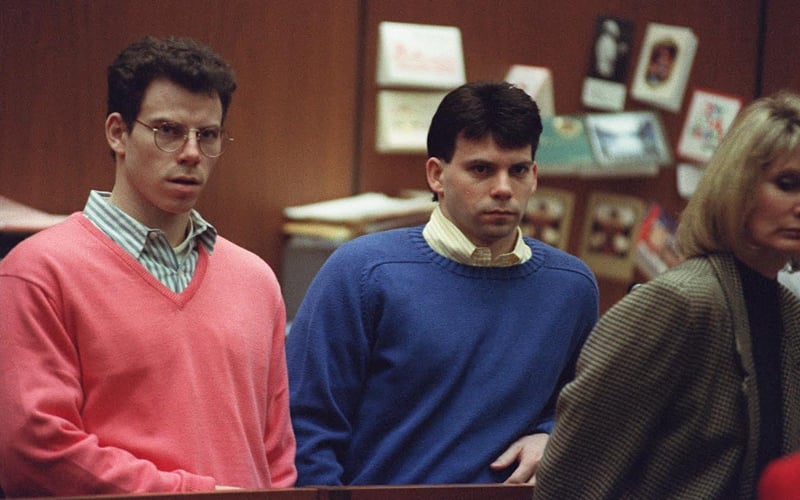“Monsters: The Menendez Brothers,” directed by Ryan White, is a grasping documentary that dives into one of the most infamous cases in American true crime history. The film explores the lives of Lyle and Erik Menendez, two brothers who were convicted of murdering their wealthy parents in 1989. Through a blend of archival footage, interviews, and analysis, the documentary shares a complex portrait of the brothers, their traumatic upbringing, and the world wide reaction to their case.
In addition, “Monsters” examines the meaning of trauma, privilege, and morality. The documentary does not only recount the events leading to the murders, it seeks to understand the psychological and emotional factors that contributed to this shocking crime. The film provides an in depth look at the Menendez brothers’ heartbreaking childhood, marked by abuse and dysfunction.
Sam Kearstan, a senior at West Morris who watched the documentary, expresses “at certain scenes it got very traumatic”. During some episodes, scenes tend to get graphic and uneasy to watch. Through interviews with family members, psychologists, and legal experts, the documentary illustrates how their traumatic experiences shaped their identities and ultimately influenced their actions. The theme of trauma is crucial, as it challenges the viewers to consider how circumstances can drive individuals to commit unspeakable acts.
Another significant theme is the contrast between the brothers’ affluent background and the horrific nature of their crime. The documentary critiques the public belief of wealth, privilege, and mortality, questioning whether the Menendez brothers were treated differently due to their socioeconomic status.
Senior Sophia Sulpizi shares that she felt the writers “didn’t tell the story the right way.” Some viewers felt as though the film writers made it seem like they murdered their parents for money, which isn’t the case at all. The film effectively explores how media narratives often exaggerate such cases, framing the brothers as monsters while explaining the difficulties of their motivations.
The cinematography balances intimate interviews with wide shots of important locations, such as the Menendez family home and courtroom. Sulpizi stated “this show left me heartbroken.” The series tends to go into very deep detail about the case, leaving the audience upset at the end of the show. This visual contrast reinforces the emotional weight of the story emphasizing the transition from a seemingly perfect family to a tragic story of betrayal and violence. Interviews are complemented by subtle background music that enhances the tension and drama, drawing viewers deeper into the subconscious mind of the film.
The inclusion of family members who recount their experiences adds a deeper touch to the whole documentary. Their reflections on the brothers’ childhood and the dynamics within the Menendez family create a deep understanding of events leading up to the murders. Kearstan shared that the thing that stood out to him the most throughout the film was “the family relationship and abuse.” This emphasis on personal narrative humanizes the brothers, challenging the audience to see them as products of their environment rather than criminals
“Monsters: The Menendez Brothers” is a powerful and thought-provoking documentary that transcends traditional true crime storytelling. Through its exploration of trauma, privilege, and societal perceptions, the film invites audiences to struggle with difficult questions about morality and human behavior.
Ryan White’s masterful direction combined with saddening interviews and compelling visuals, creates an engaging narrative that leaves people lingering long after the credits roll. The documentary not only sheds light on the case but also challenges viewers to reconsider their understanding of monstrosity in the context of human experience. This film is an essential viewing for anyone interested in the psychological complications of crime and the societal factors that shape our perceptions of justice and morality.
































